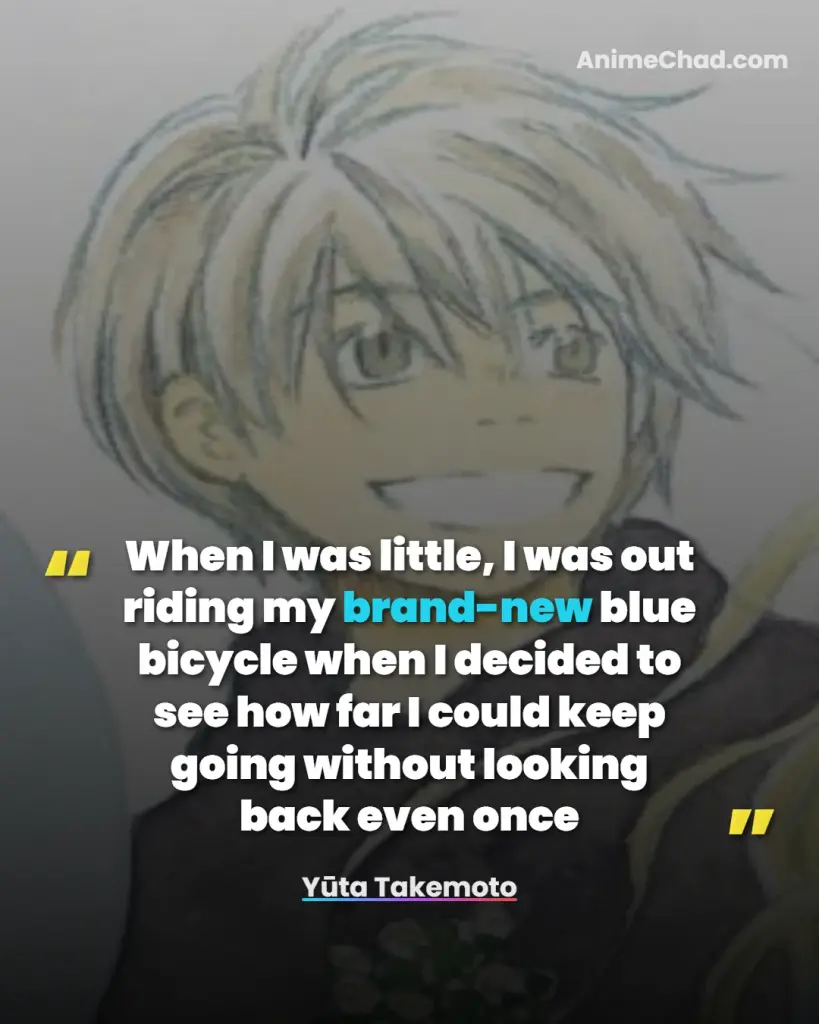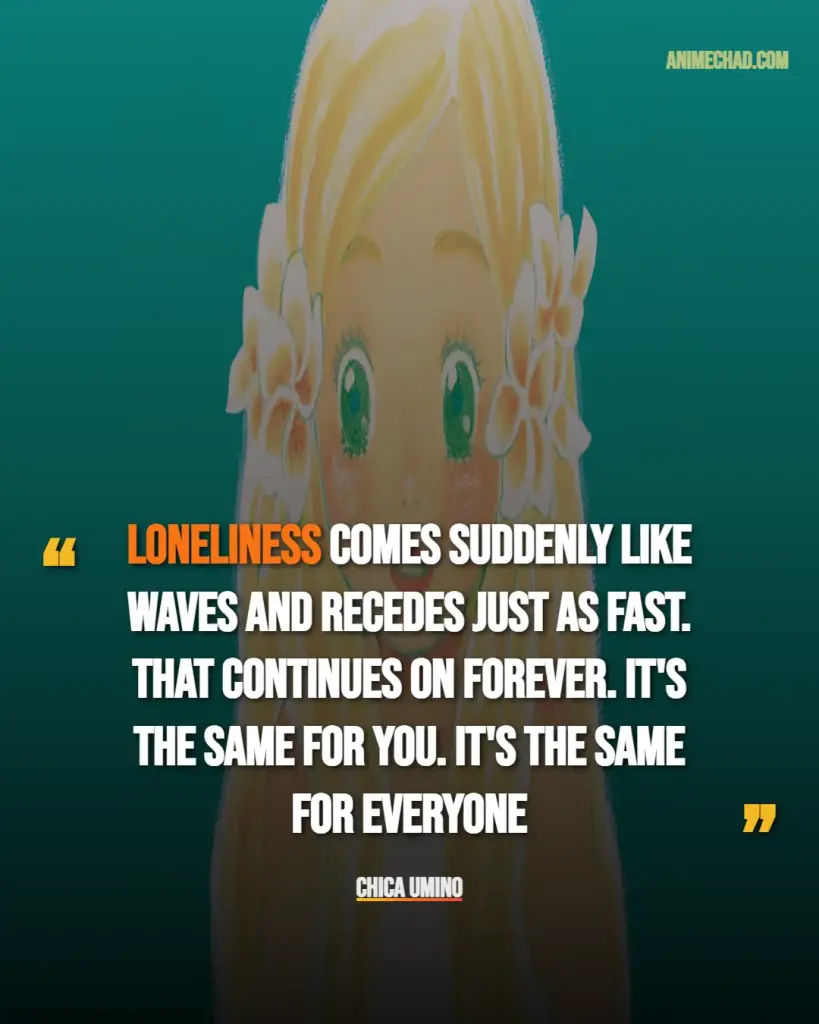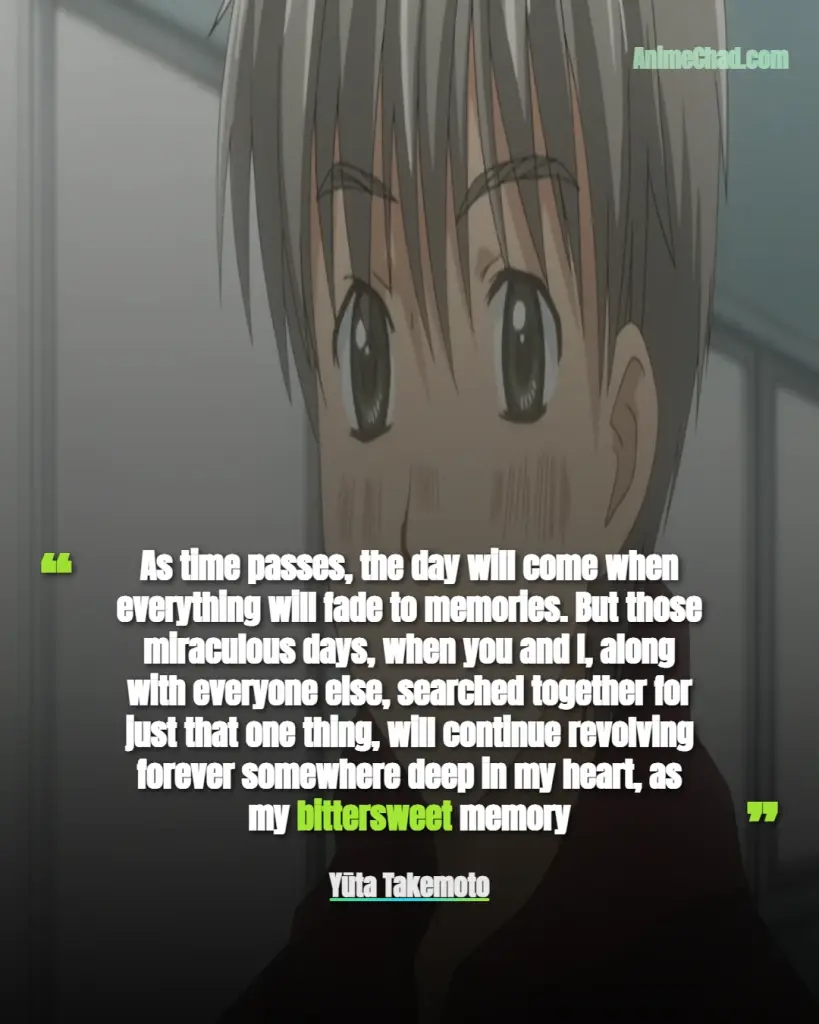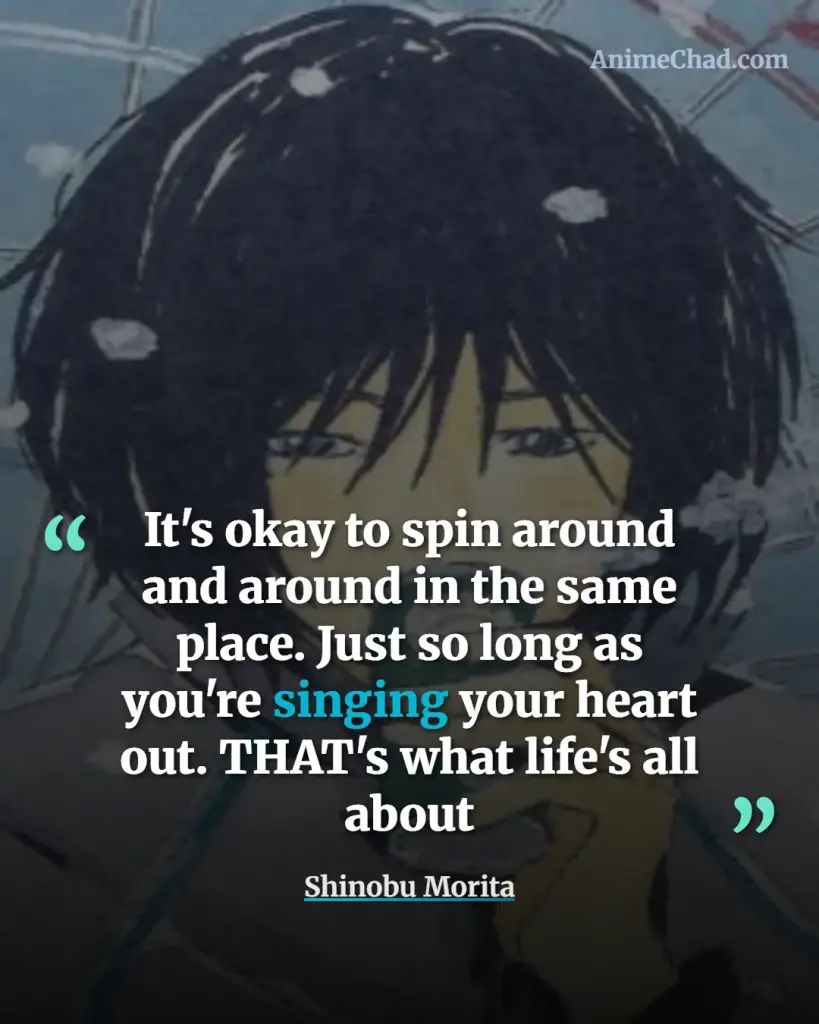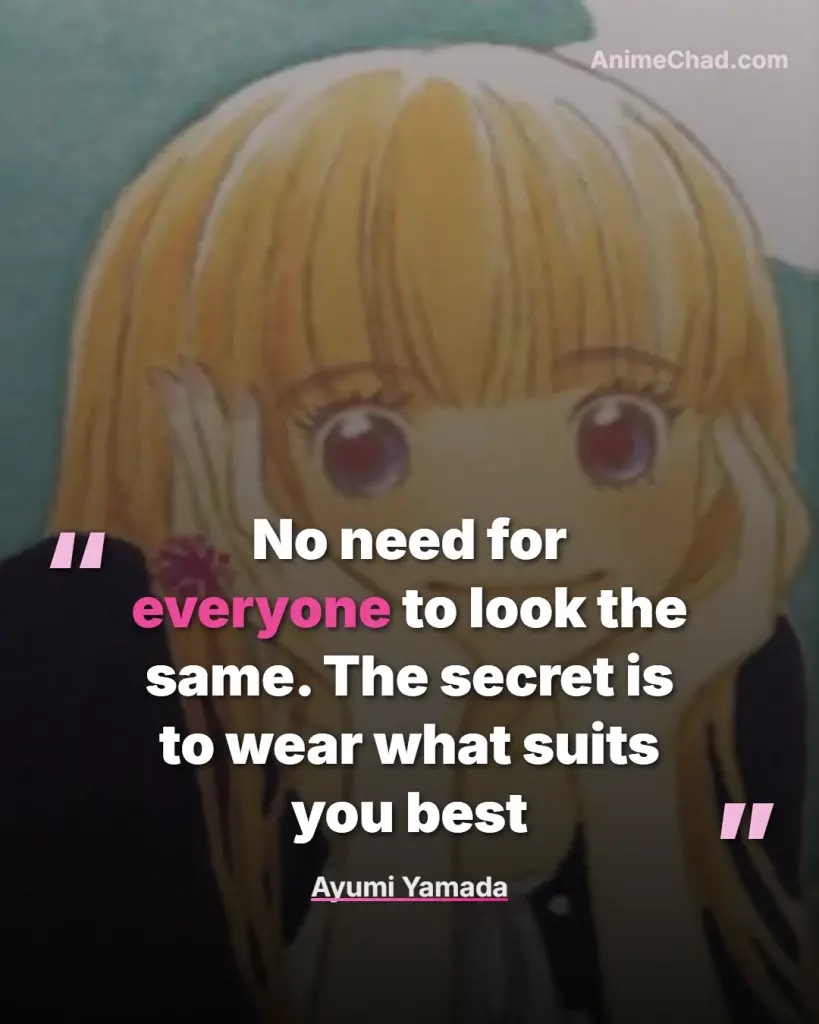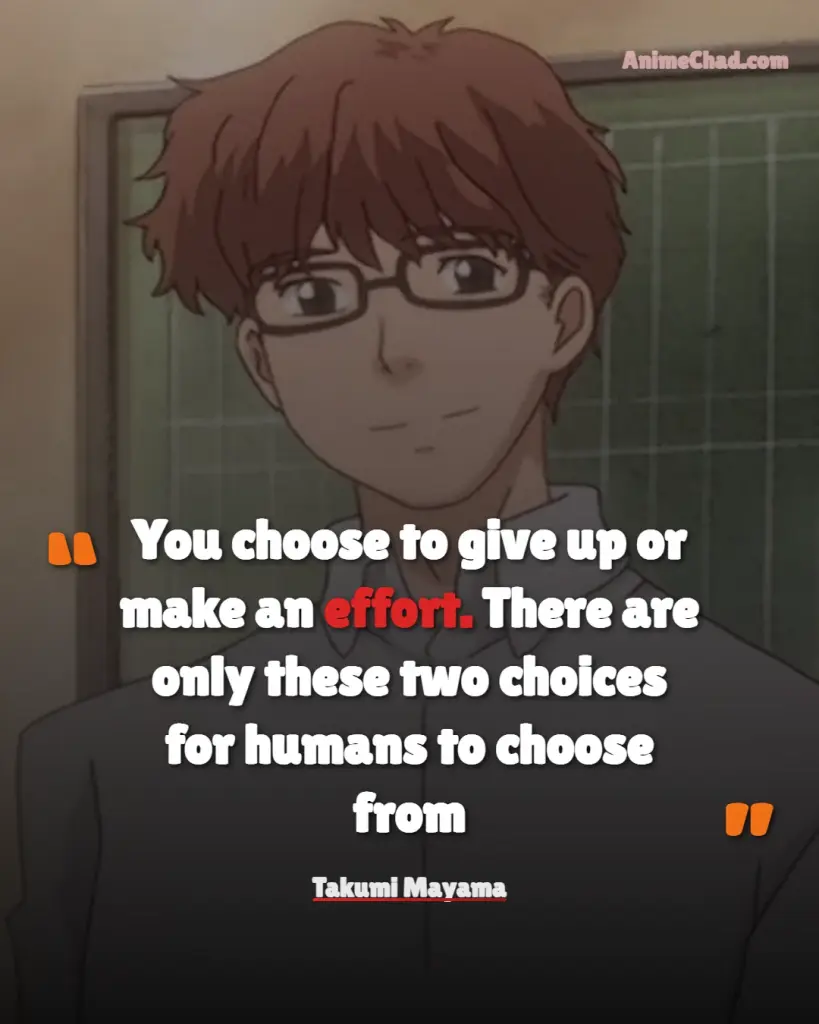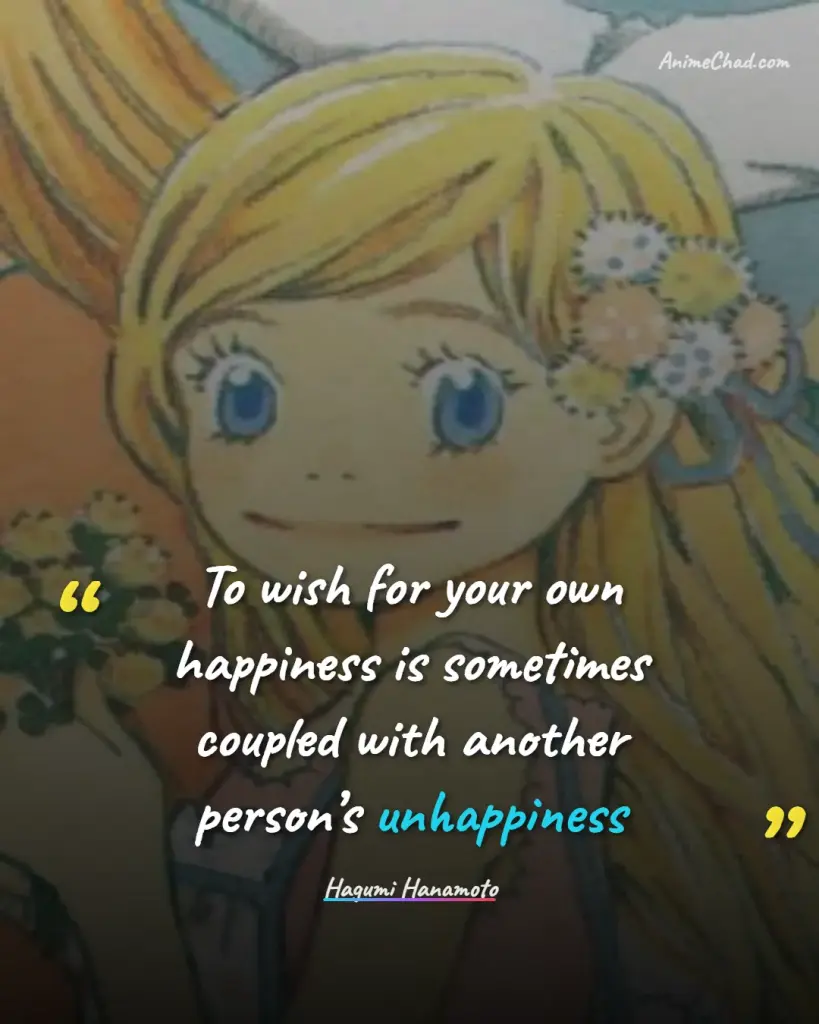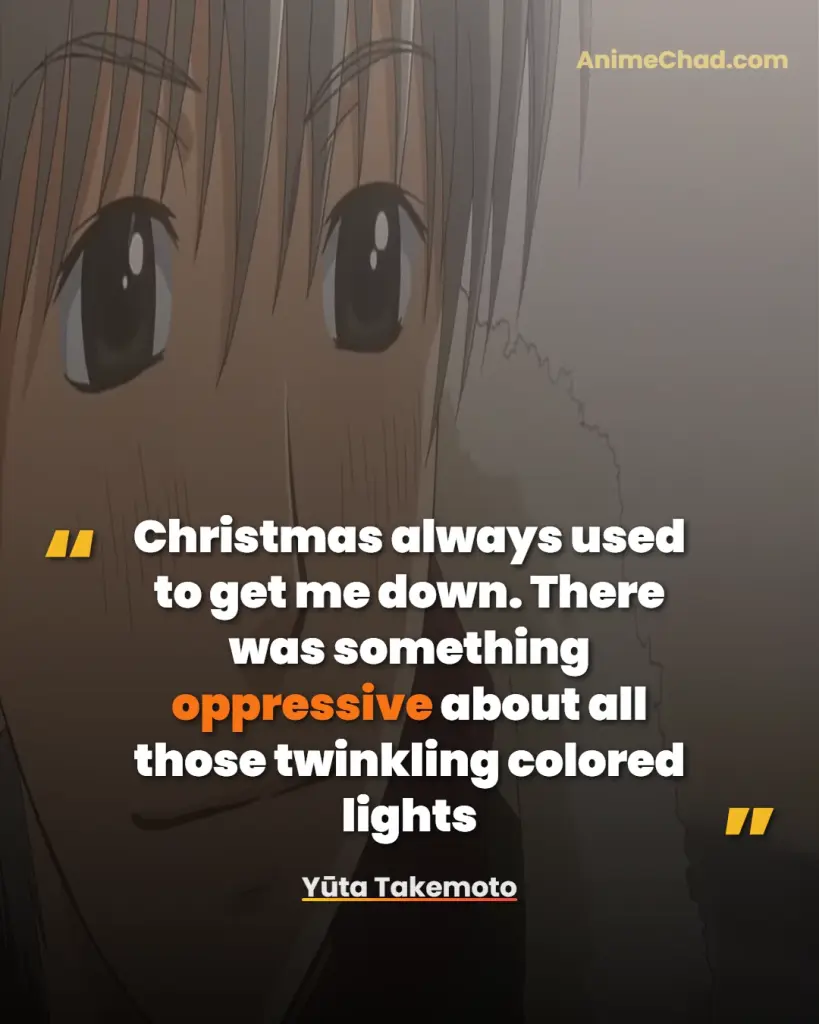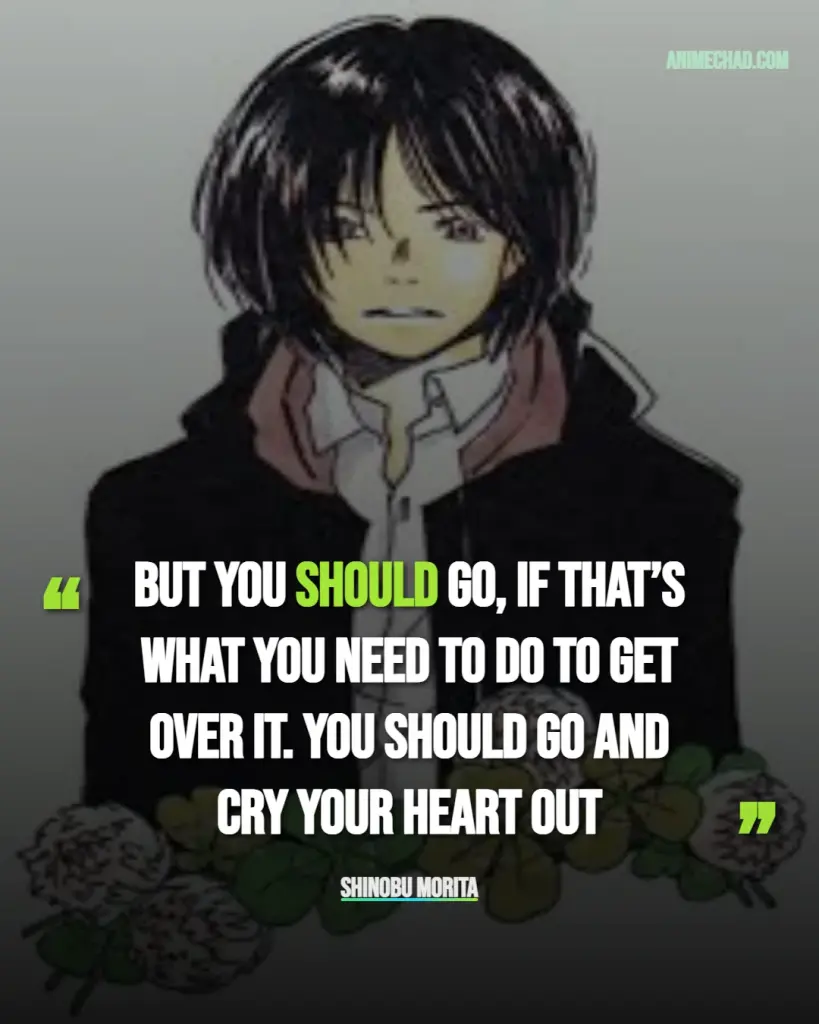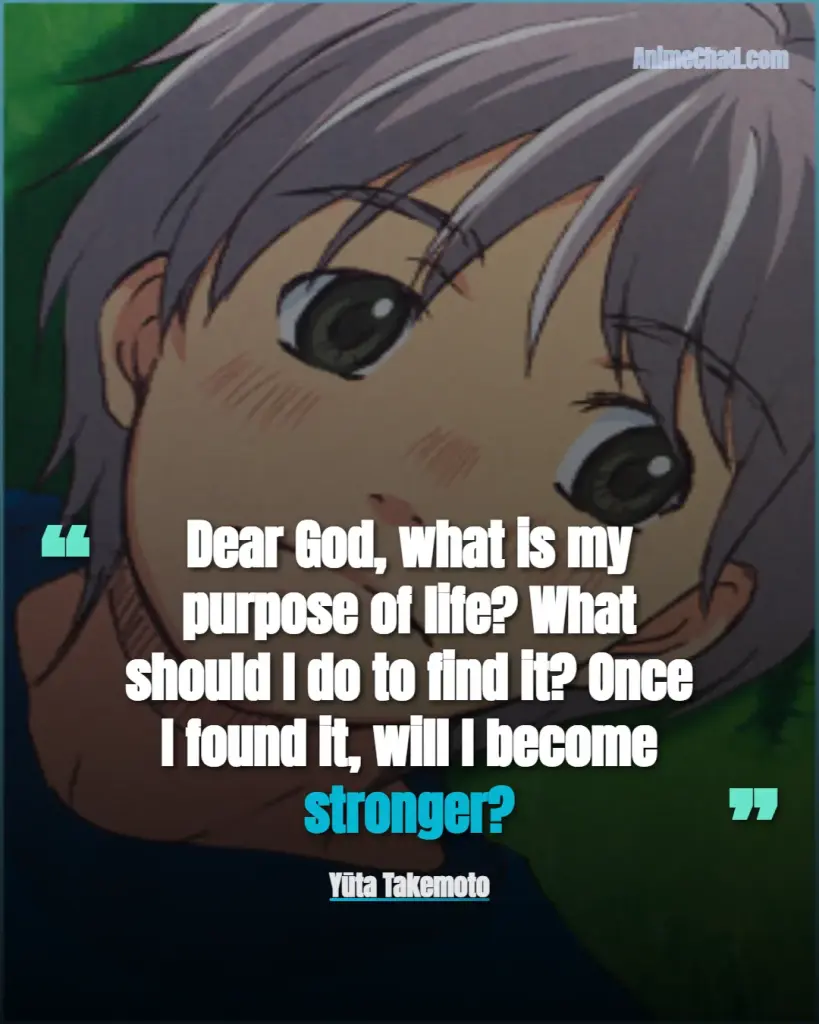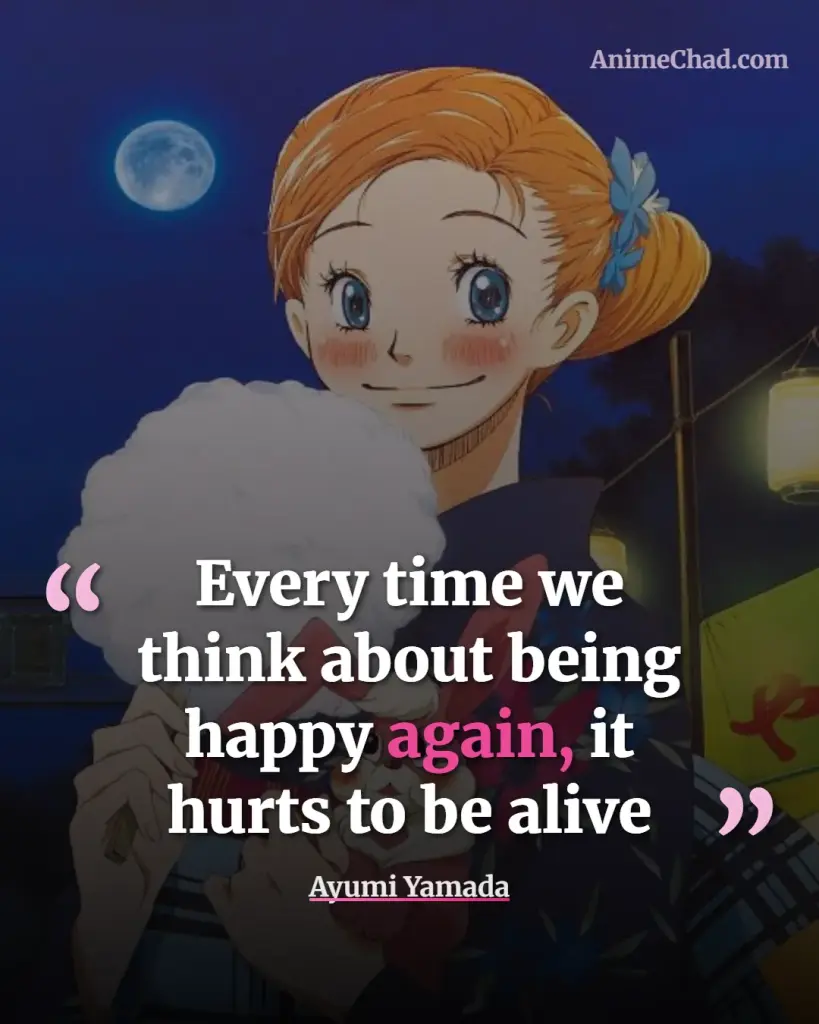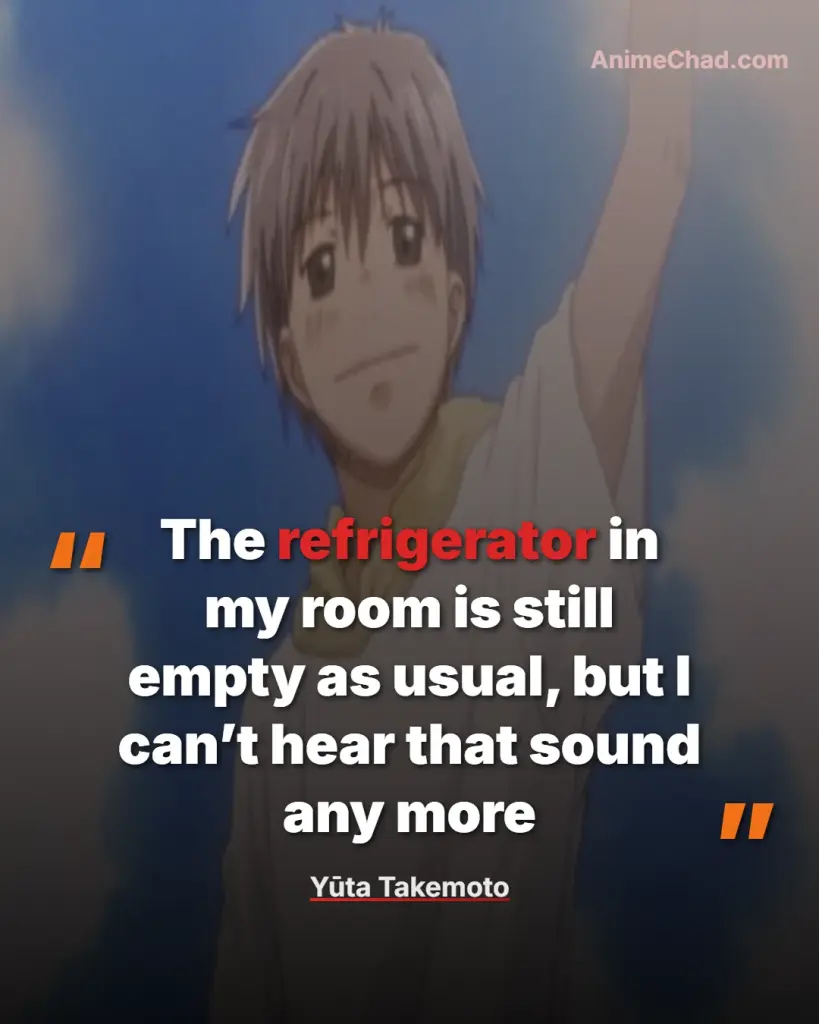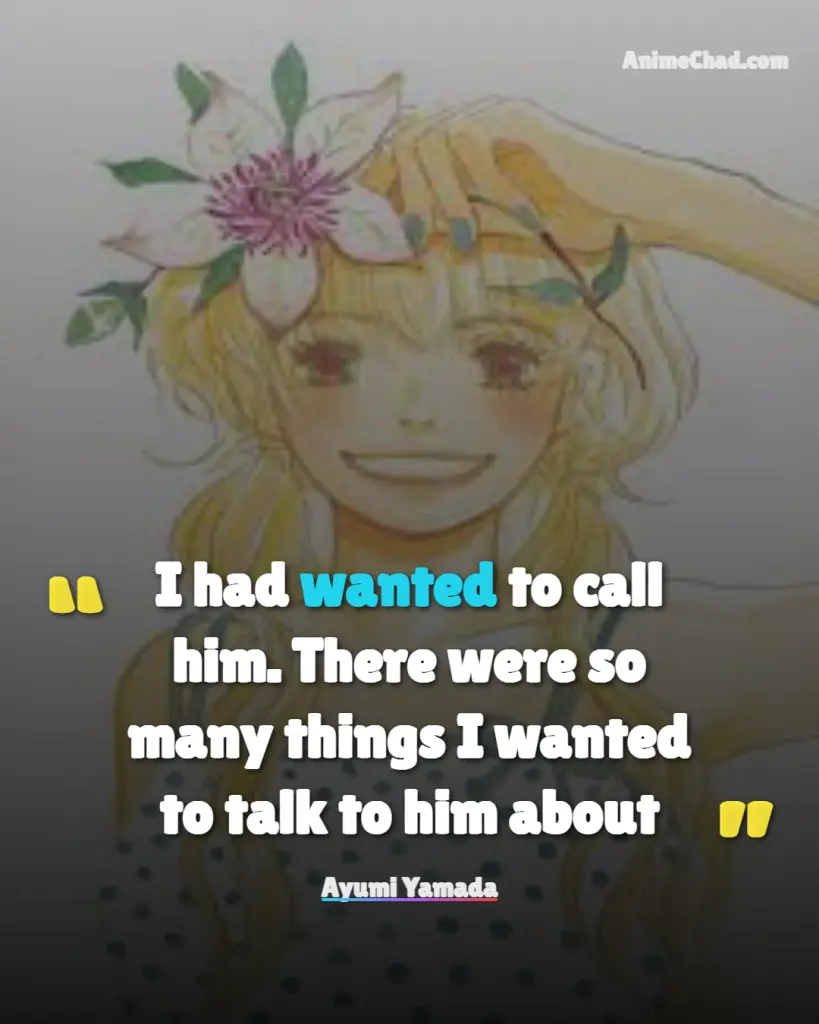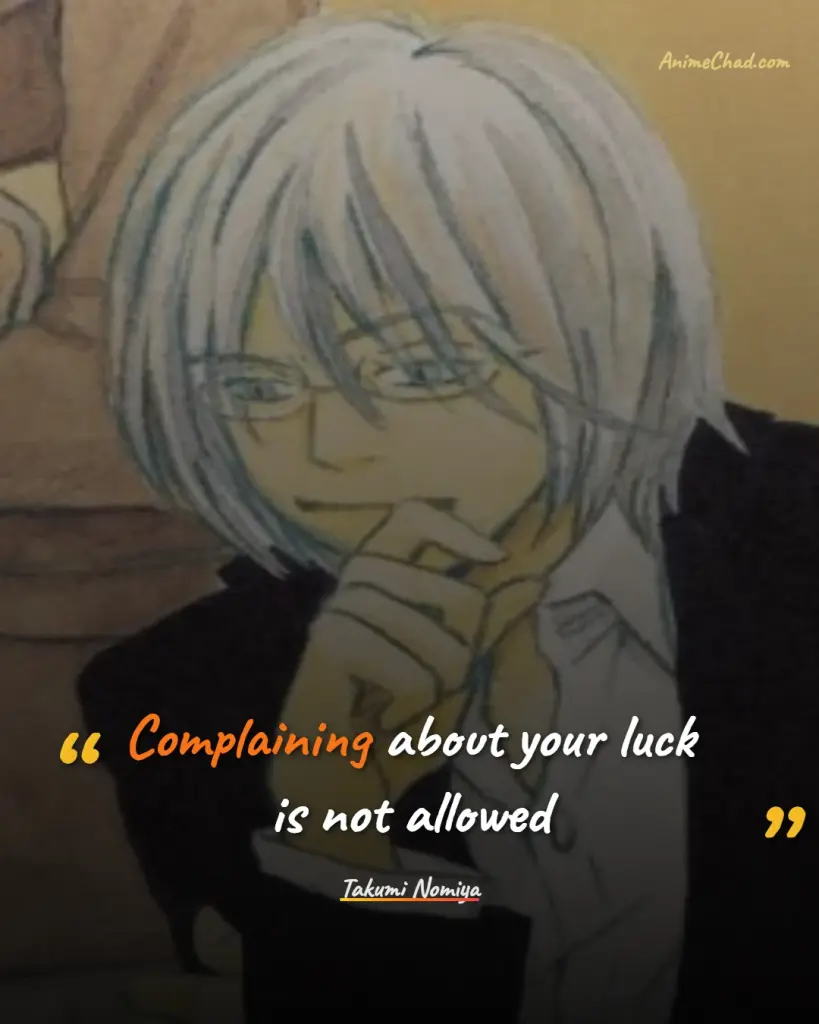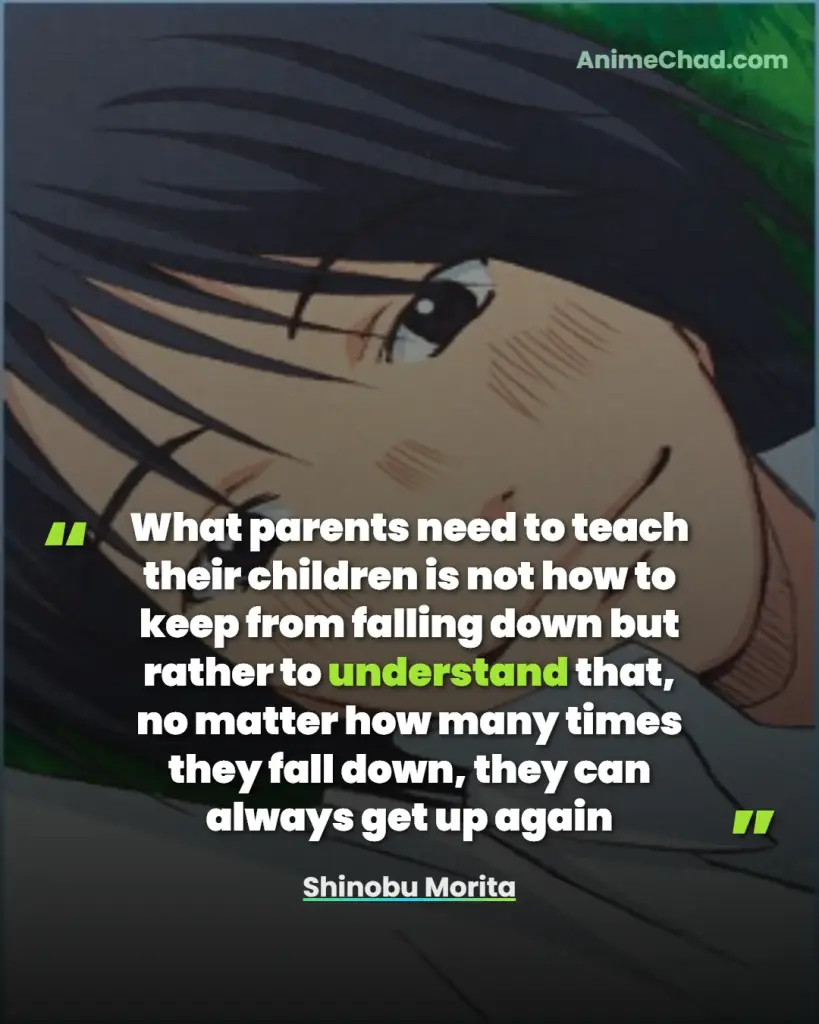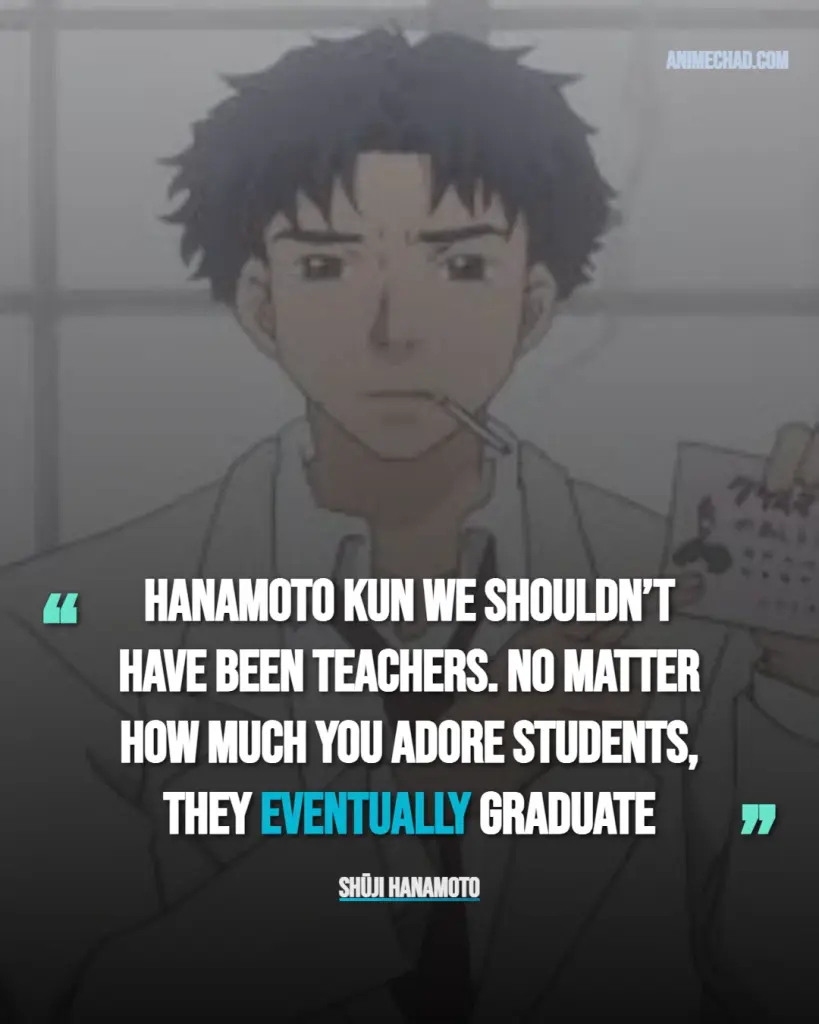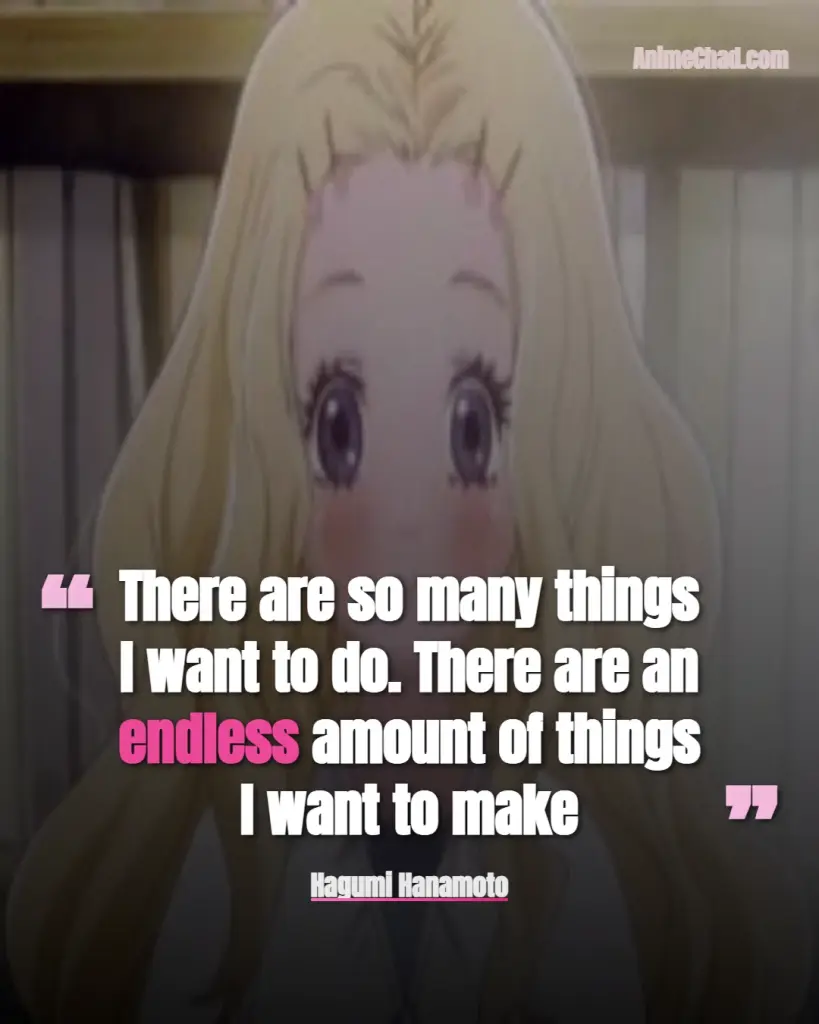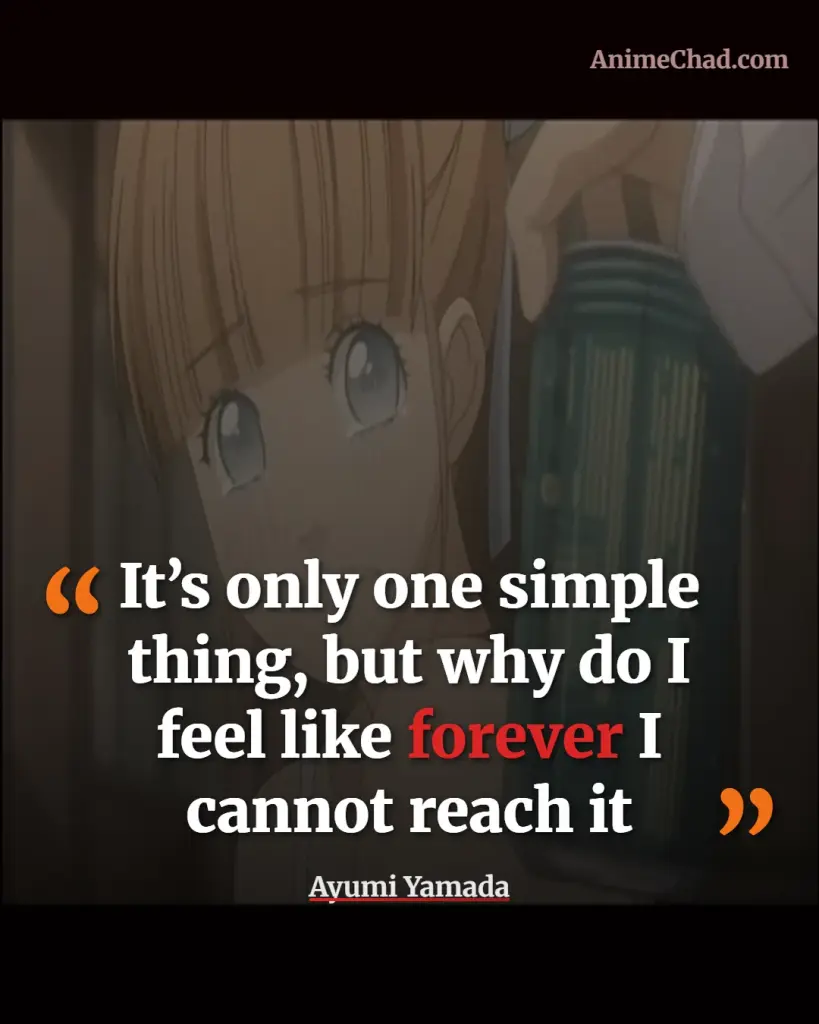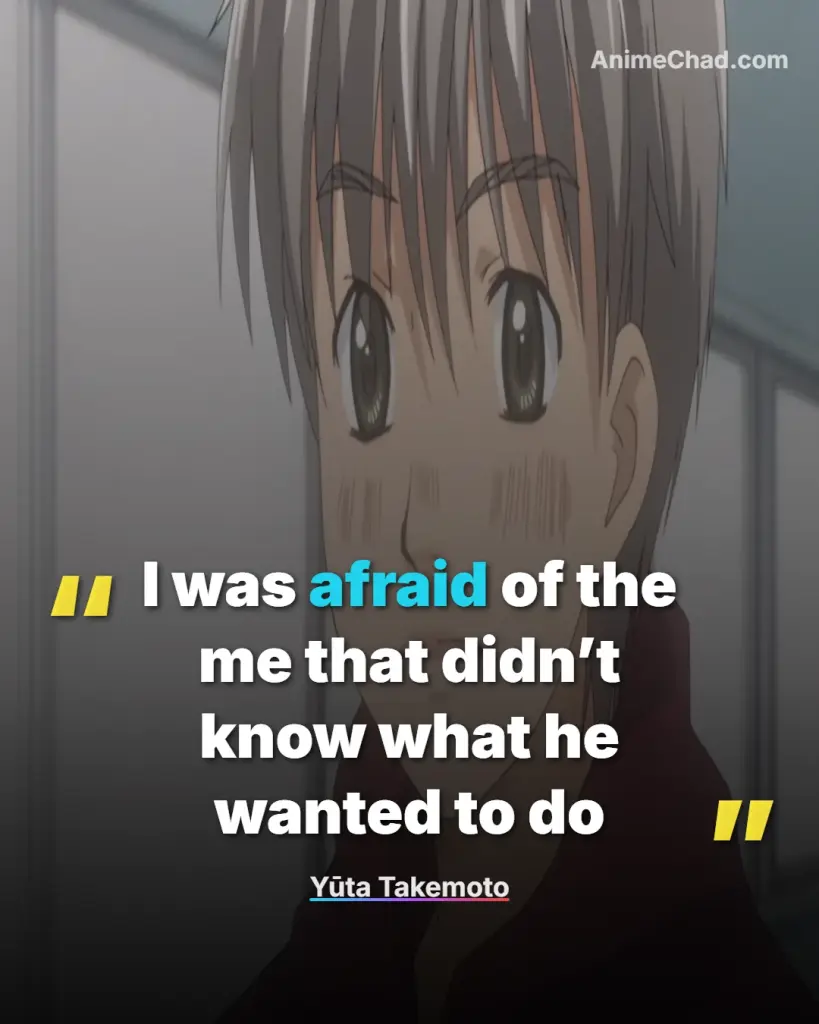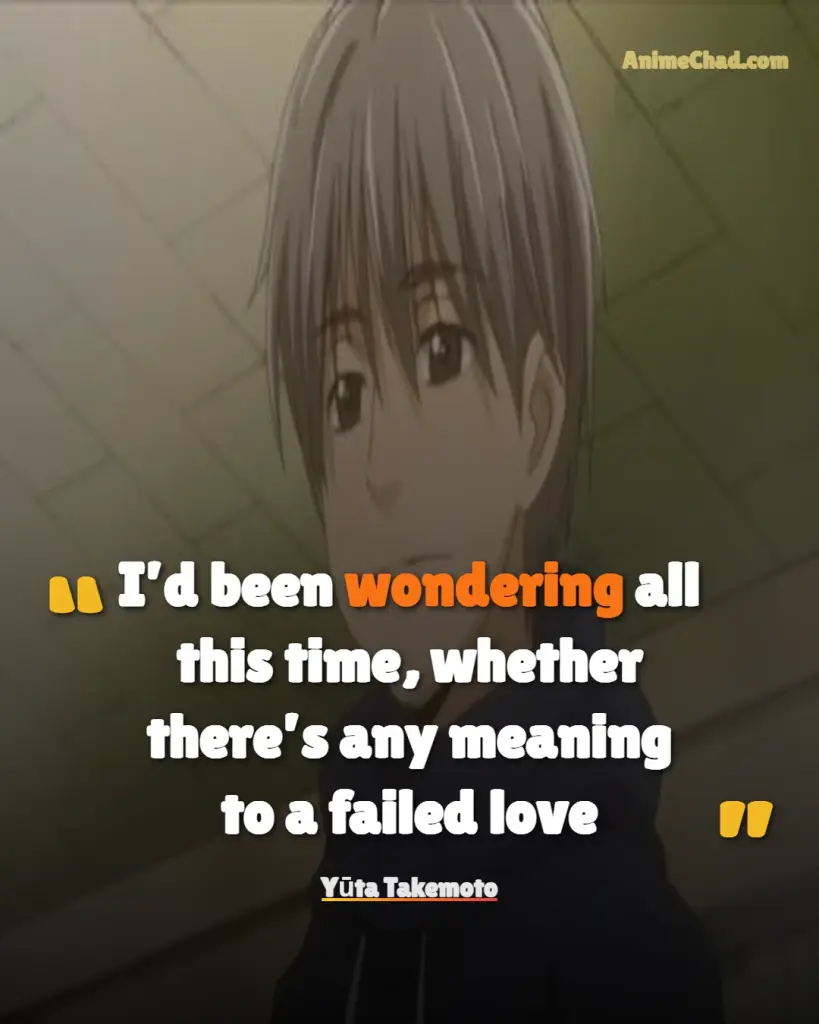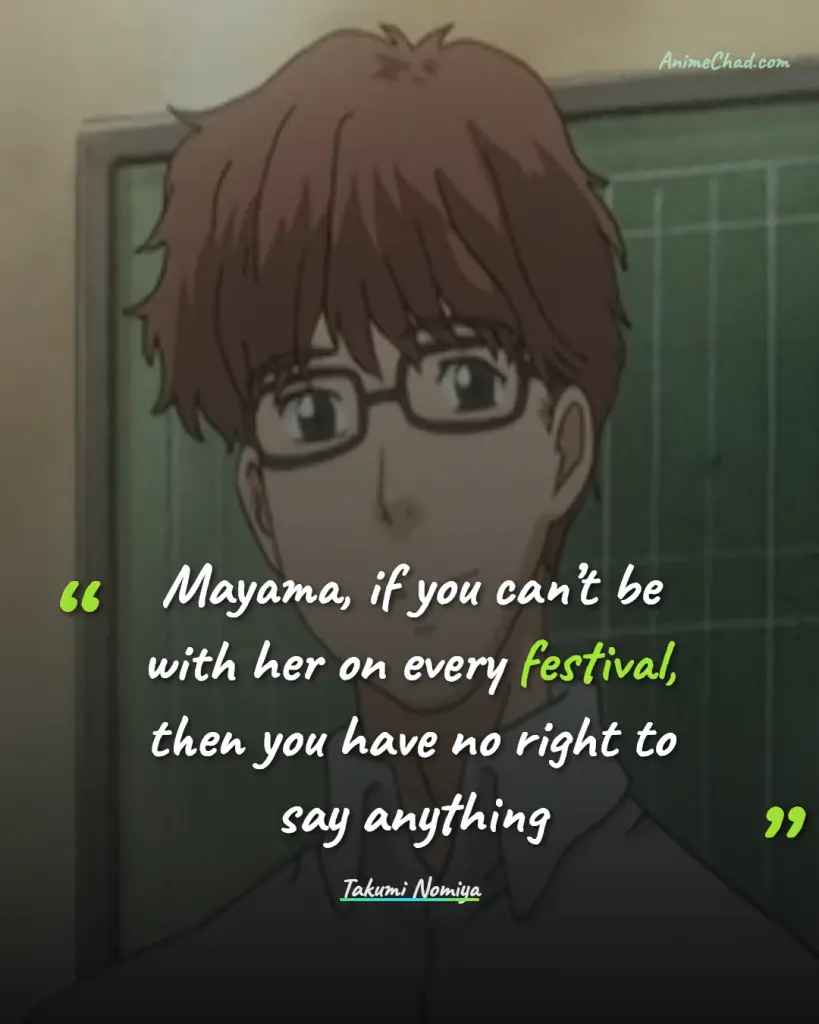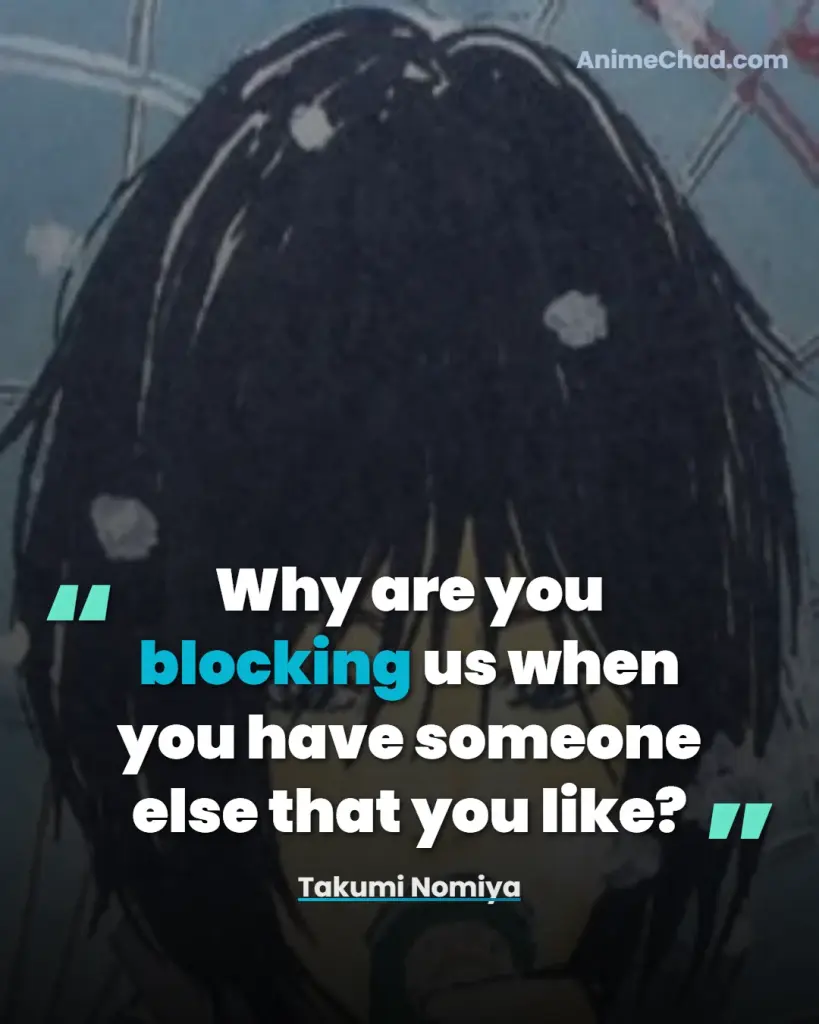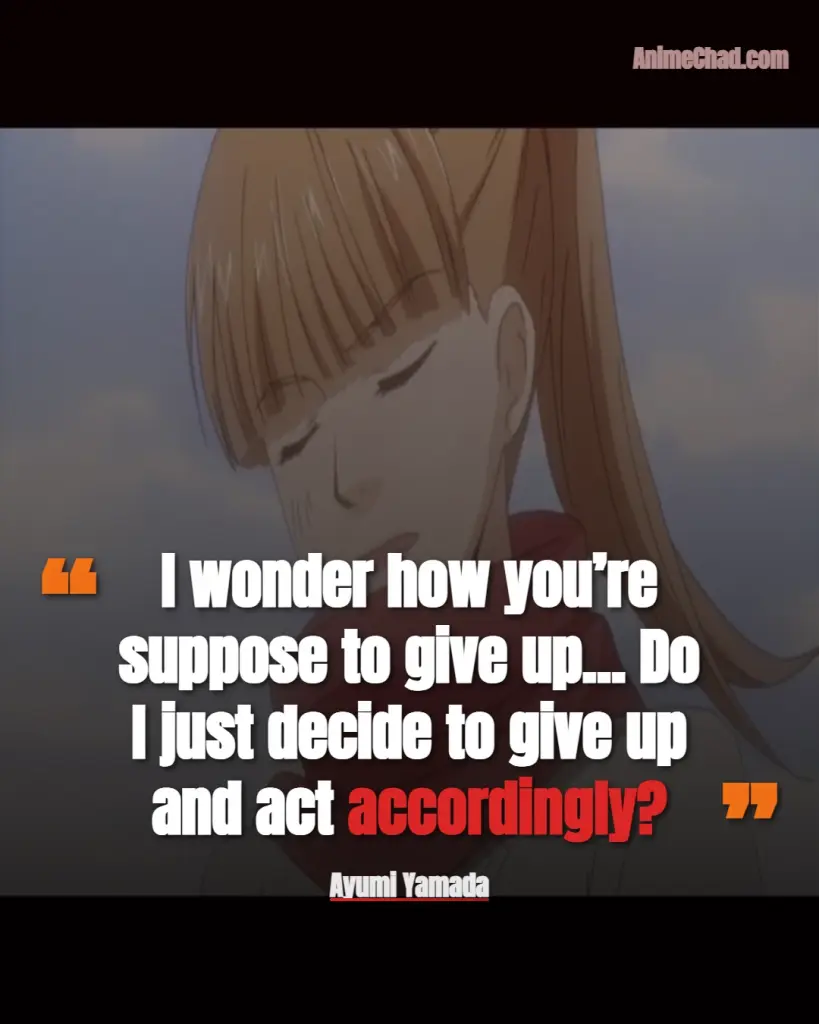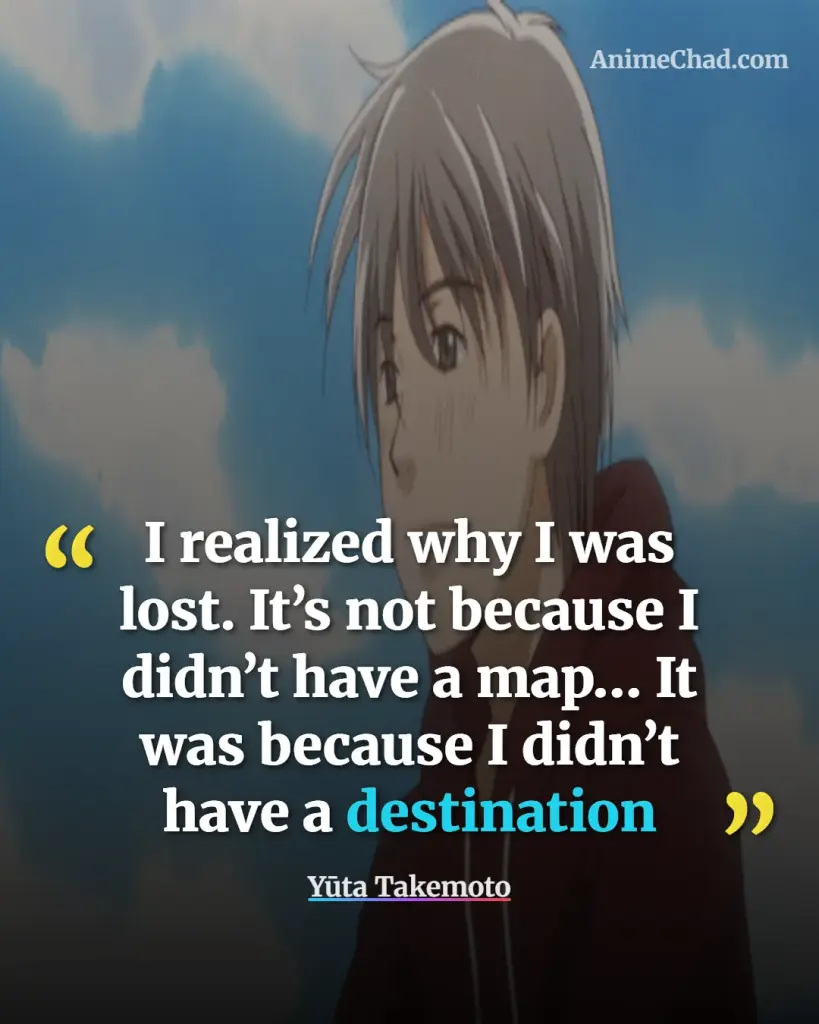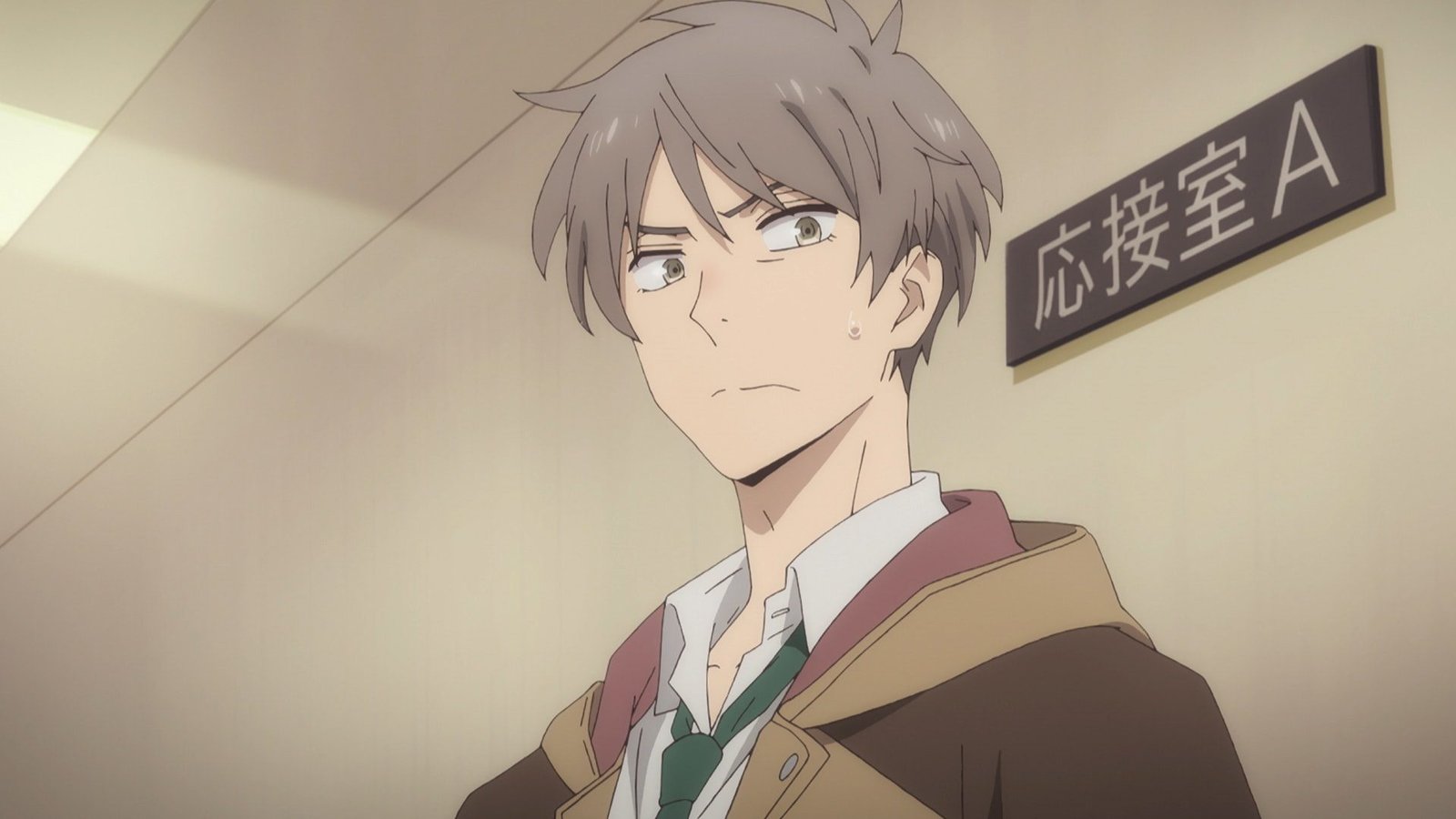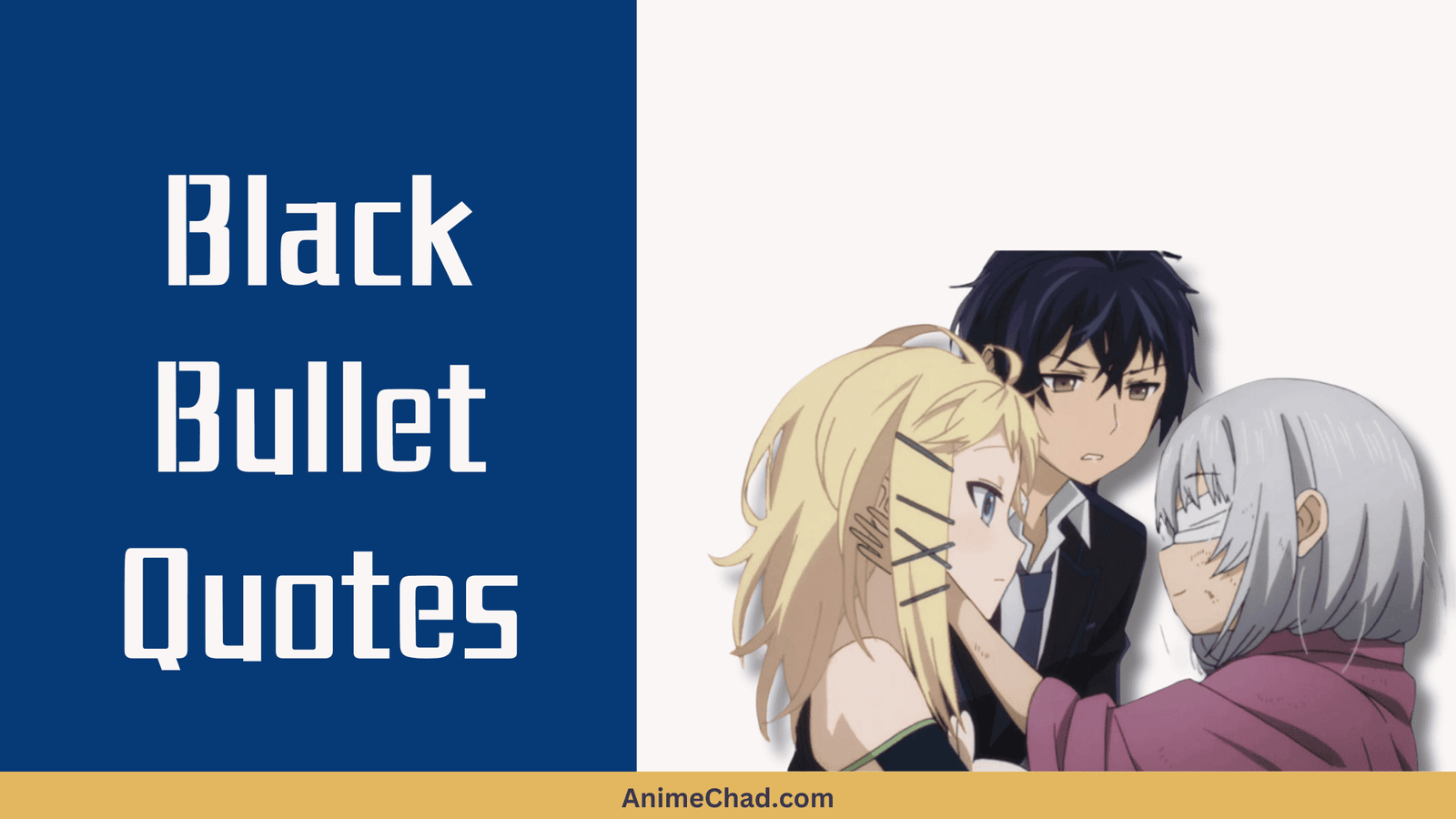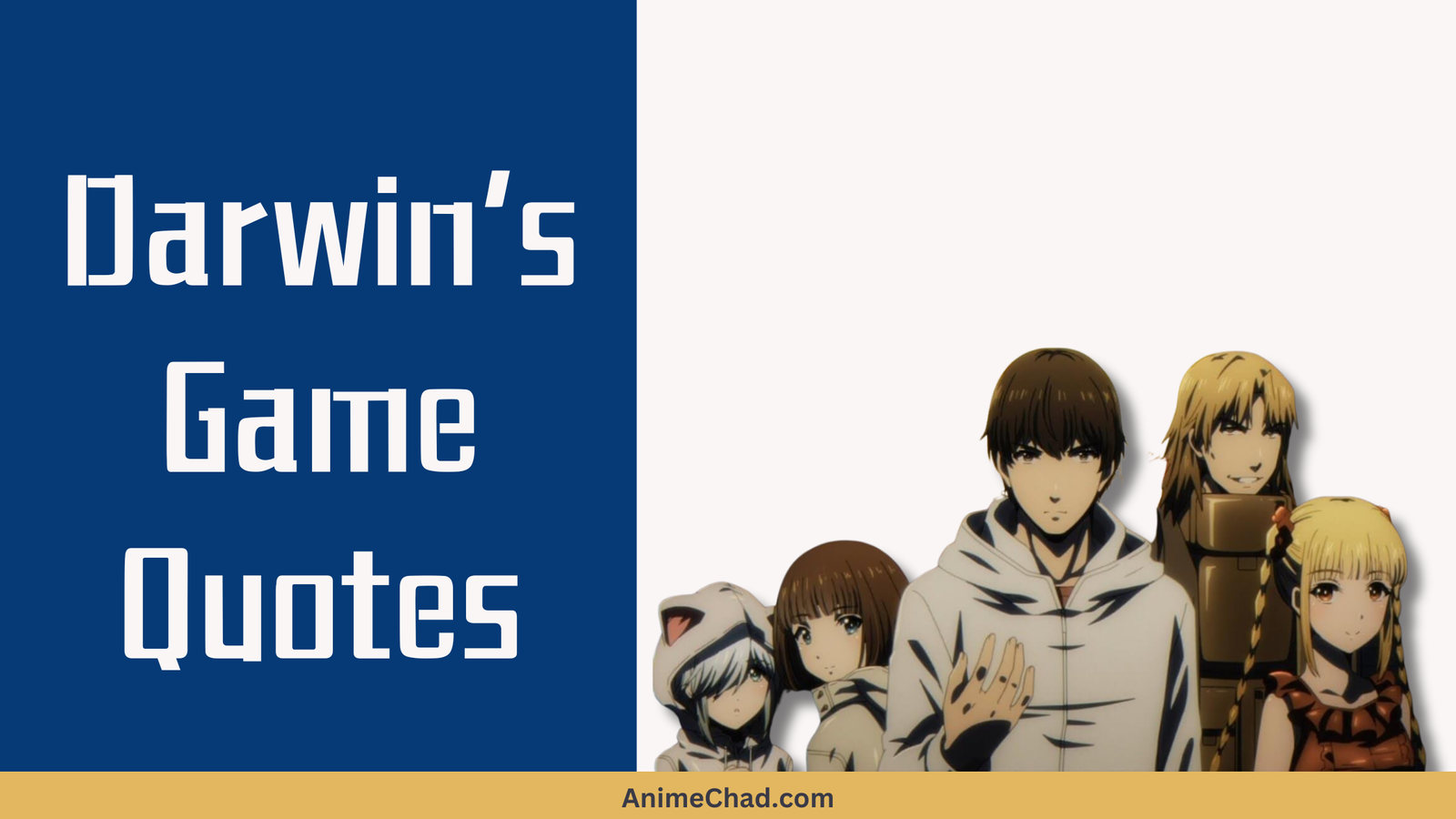Honey and Clover is a poignant slice-of-life series centered on Yūta Takemoto and his fellow art college students as they grapple with the uncertainties of young adulthood in a shared apartment. The story delves into key themes of unrequited love, self-discovery, friendship, and the bittersweet pursuit of artistic dreams amid life’s transitions.
This curated collection of the best 25 quotes highlights the series’ emotional resonance, character evolution, and thematic depth, drawing from both intense personal struggles and serene reflective moments across various arcs.
When I was little, I was out riding my brand-new blue bicycle when I decided to see how far I could keep going without looking back even once
(Volume 7)
Yūta Takemoto
Reflects Takemoto’s journey of self-discovery, evoking profound emptiness and growth in facing life’s uncertainties.
Loneliness comes suddenly like waves and recedes just as fast. That continues on forever. It’s the same for you. It’s the same for everyone
(Volume unspecified)
Chica Umino (narrator)
Captures fleeting isolation, fostering empathy and emotional maturity in characters navigating relational themes.
As time passes, the day will come when everything will fade to memories. But those miraculous days, when you and I, along with everyone else, searched together for just that one thing, will continue revolving forever somewhere deep in my heart, as my bittersweet memory
(Volume unspecified)
Yūta Takemoto
Emphasizes cherishing transient friendships, marking Takemoto’s poignant growth through nostalgia and loss.
It’s okay to spin around and around in the same place. Just so long as you’re singing your heart out. THAT’s what life’s all about
(Volume 4)
Shinobu Morita
Highlights joyful perseverance in creativity, showcasing Morita’s eccentric development amid artistic struggles.
No need for everyone to look the same. The secret is to wear what suits you best
(Volume 4)
Ayumi Yamada
Promotes self-acceptance, revealing Yamada’s emotional resilience in themes of individuality and unrequited love.
You choose to give up or make an effort. There are only these two choices for humans to choose from
(Volume unspecified)
Takumi Mayama
Underscores agency in relationships, driving Mayama’s introspective arc on love and personal responsibility.
To wish for your own happiness is sometimes coupled with another person’s unhappiness
(Volume unspecified)
Hagumi Hanamoto
Explores sacrificial love’s pain, deepening Hagu’s fragile development in themes of empathy and growth.
Christmas always used to get me down. There was something oppressive about all those twinkling colored lights
(Volume unspecified)
Yūta Takemoto
Conveys seasonal melancholy, illustrating Takemoto’s evolving understanding of belonging and inner peace.
But you should go, if that’s what you need to do to get over it. You should go and cry your heart out
(Volume unspecified)
Shinobu Morita
Encourages emotional release, highlighting Morita’s supportive role in friends’ healing and relational bonds.
Dear God, what is my purpose of life? What should I do to find it? Once I found it, will I become stronger?
(Volume 6)
Yūta Takemoto
Expresses existential doubt, pivotal for Takemoto’s arc of finding strength through self-reflection and purpose.
Every time we think about being happy again, it hurts to be alive
(Volume 9)
Ayumi Yamada
Captures despair in unrequited love, emphasizing Yamada’s painful yet transformative emotional journey.
The refrigerator in my room is still empty as usual, but I can’t hear that sound any more
(Volume unspecified)
Yūta Takemoto
Symbolizes overcoming inner voids, marking Takemoto’s growth in themes of hope and personal fulfillment.
I had wanted to call him. There were so many things I wanted to talk to him about
(Volume 9)
Ayumi Yamada
Reveals internal conflict in love, showcasing Yamada’s development from denial to vulnerable acceptance.
Complaining about your luck is not allowed
(Volume unspecified)
Takumi Nomiya
Promotes resilience, reflecting Nomiya’s mature guidance in arcs of hardship and collective support.
What parents need to teach their children is not how to keep from falling down but rather to understand that, no matter how many times they fall down, they can always get up again
(Volume unspecified)
Shinobu Morita
Humorously imparts life lessons, aiding Morita’s eccentric wisdom in themes of perseverance.
Hanamoto kun we shouldn’t have been teachers. No matter how much you adore students, they eventually graduate
(Volume unspecified)
Shūji Hanamoto
Evokes bittersweet transience, deepening Hanamoto’s role in mentorship and emotional farewells.
There are so many things I want to do. There are an endless amount of things I want to make
(Anime Episode 1, Season 1)
Hagumi Hanamoto
Ignites creative passion, highlighting Hagu’s innocent development amid artistic discovery themes.
It’s only one simple thing, but why do I feel like forever I cannot reach it
(Anime Episode 12, Season 1)
Ayumi Yamada
Expresses longing in love, underscoring Yamada’s heartfelt struggle and growth in emotional arcs.
I was afraid of the me that didn’t know what he wanted to do
(Anime Episode 24, Season 1)
Yūta Takemoto
Reveals fear of aimlessness, pivotal for Takemoto’s self-realization in pursuit of dreams.
I’d been wondering all this time, whether there’s any meaning to a failed love
(Anime Episode 10, Season 2)
Yūta Takemoto
Questions love’s value, fostering Takemoto’s maturity in themes of acceptance and moving forward.
Mayama, if you can’t be with her on every festival, then you have no right to say anything
(Anime Episode 5, Season 2)
Takumi Nomiya
Challenges possessiveness, advancing Nomiya’s arc on fair love and relational ethics.
Why are you blocking us when you have someone else that you like?
(Anime Episode 8, Season 2)
Takumi Nomiya
Confronts ambiguity, emphasizing Nomiya’s directness in resolving unrequited tensions.
I pushed him away and hurt him yet he still stood by my side
(Anime Episode 15, Season 1)
Rika Harada
Highlights toxic bonds, revealing Rika’s introspective growth in themes of healing.
I wonder how you’re suppose to give up… Do I just decide to give up and act accordingly?
(Anime Episode 20, Season 2)
Ayumi Yamada
Ponders letting go, capturing Yamada’s emotional evolution from pain to potential renewal.
I realized why I was lost. It’s not because I didn’t have a map… It was because I didn’t have a destination
(Anime Episode 24, Season 1)
Yūta Takemoto
Symbolizes clarity in purpose, culminating Takemoto’s arc of self-discovery and direction.


